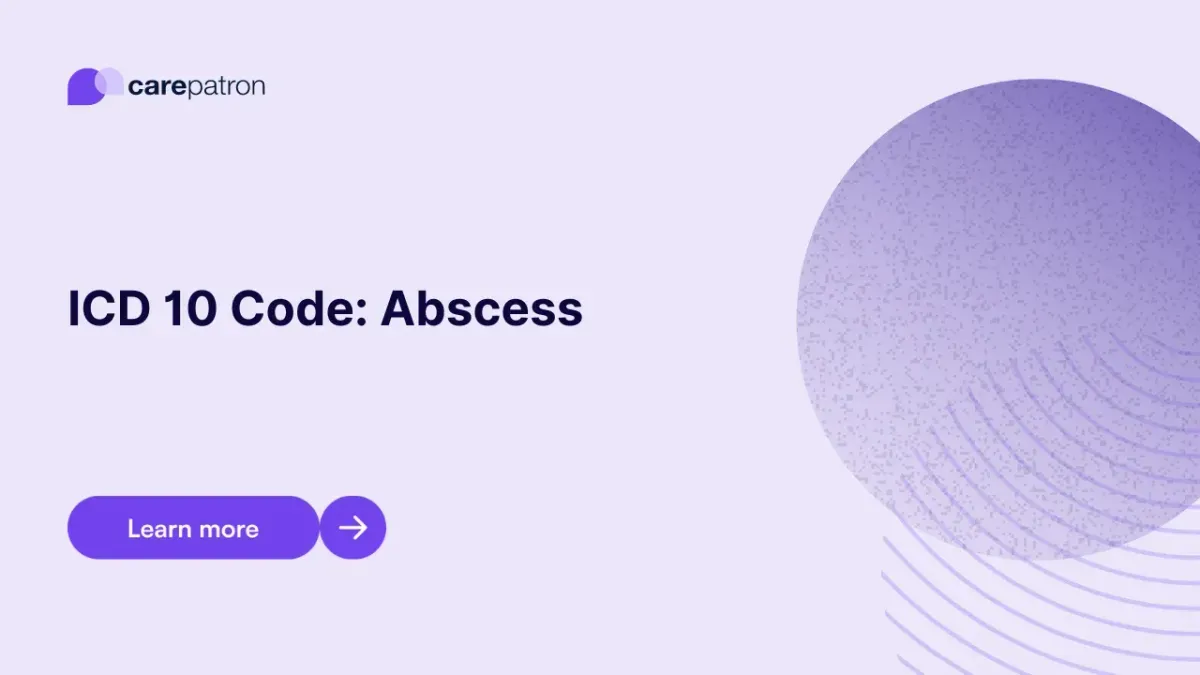
Abscess ICD-10-CM Codes
Explore ICD-10-CM codes for abscesses. Learn about common codes, billable statuses, and gain clinical insights in this comprehensive guide.
Use Code
Commonly asked questions
An abscess is typically caused by a bacterial infection that leads to a localized buildup of pus. It often develops when bacteria enter the skin through a cut, hair follicle, or blocked gland. In some cases, the condition may occur alongside acute lymphangitis cellulitis, indicating a more widespread or deeper infection.
Treatment for an abscess usually involves incision and drainage to release the pus and reduce pressure. Antibiotics may be prescribed if there's surrounding cellulitis, acute lymphangitis, or if the infection is severe or spreading.
Yes, abscesses can recur, especially if the underlying cause—such as poor hygiene, chronic skin conditions, or persistent bacterial colonization—is not addressed.
EHR and practice management software
Get started for free
*No credit card required
Free
$0/usd
Unlimited clients
Telehealth
1GB of storage
Client portal text
Automated billing and online payments
